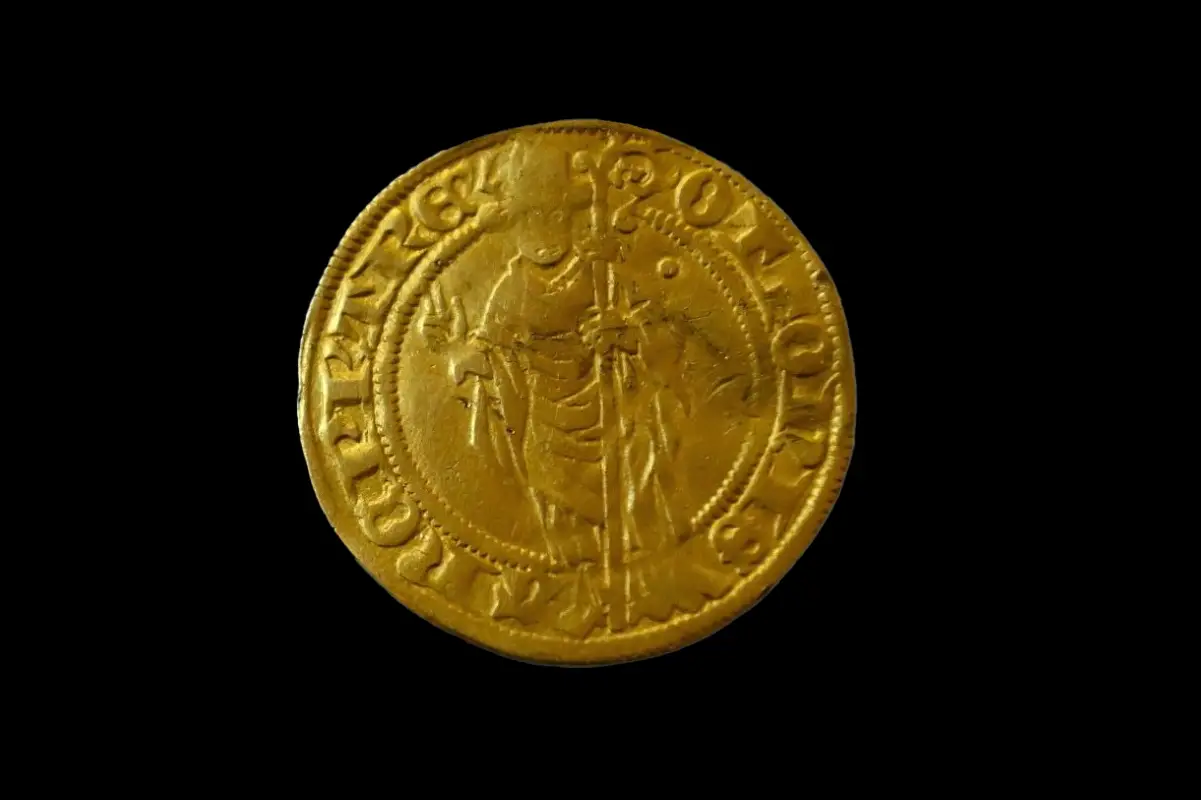A medieval gold Rhenish guilder was recently discovered near Kamień Pomorski in West Pomerania.
The discovery was made by Daniel Kwaśniak vel Kwaśniewski, a passionate history enthusiast and member of the Saint Cordula Exploration Association.
During an authorised metal detecting survey near the town of Kamień Pomorski, Kwaśniak found the coin buried about 10 cm deep in the soil.
According to experts, the coin is a gold Rhenish guilder, the standard gold currency coin of the Rhineland during the 14th and 15th centuries.
The obverse depicts Otto von Ziegenhein, an important figure in the Holy Roman Empire who served as the Archbishop and Elector of Trier from 1419 to 1430.
He is shown wearing liturgical robes, holding a crozier in one hand, and raising his other hand in a gesture of blessing. Surrounding the image is the Latin inscription “OTTONIS ARCPI”TR,” which means “Otto, Archbishop of Trier.”
The reverse features a heraldic shield representing the archbishopric of Trier, encircled by the inscription “MOnETA-nOVA-AVREA-OVEN,” or “New gold coin of Offenbach.”
The museum emphasised that the discovery of such a coin in Poland is extremely rare and underscores the region’s historical significance as a centre of trade and political interaction in the 15th century.
The coin likely arrived in Pomerania through trade, as Rhenish guilders were of central importance to the German monetary system and were used in long-distance trading with Bohemia, Hungary, Switzerland, Moravia, the Netherlands, Spain and France.
The Rhenish guilder is the third gold coin to join the Kamień Land History Museum’s collection. In 2014, a gold coin of Frederick William II (dated 1794) was discovered in the region, while in February this year, a gold ducat (dated 1777) was discovered.
Header Image Credit : Kamień Land History Museum
Sources : PAP





